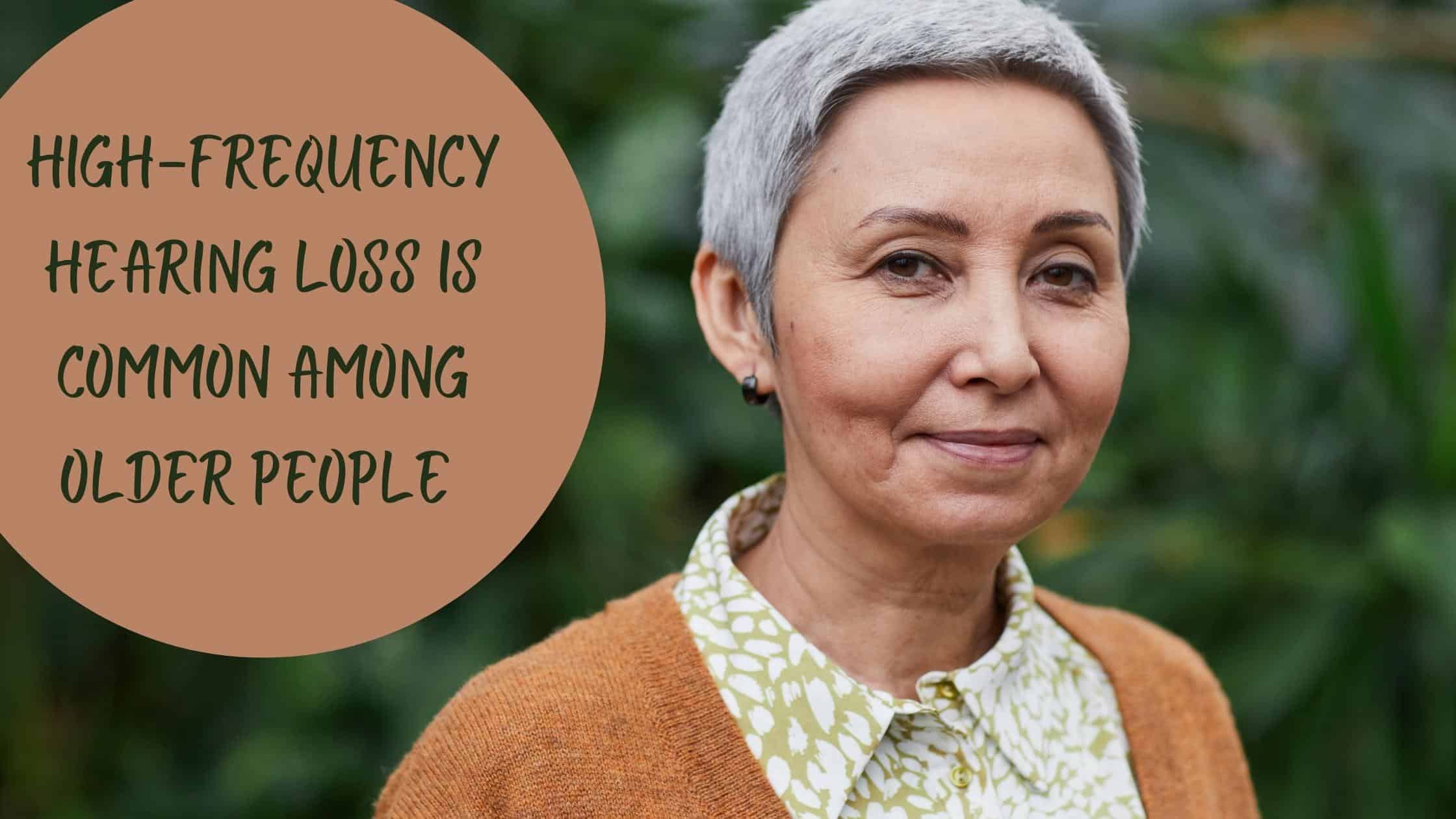
It’s quite common for older adults to have high-frequency hearing loss. This is hearing loss that affects higher pitches. The two most common kinds of hearing loss, noise-induced hearing loss and age-related hearing loss, both cause high-frequency hearing loss. A new study looks at just how many seniors have this kind of hearing loss.
What is High-Frequency Hearing Loss?
High-frequency hearing loss makes it difficult to hear high-pitched sounds. This makes it harder to hear the voices of women and children or hear higher-pitched sounds like the doorbell. High-frequency hearing loss also affects speech understanding. Many of the consonant sounds are in higher frequencies. Without hearing all the consonant sounds clearly, it’s almost impossible to understand what’s being said.
Do you think you’re hearing every word, but just can’t make sense of the sentence? Have you been asking your loved ones to repeat themselves? These are signs of high-frequency hearing loss.
Symptoms of High-Frequency Hearing Loss
Do you have high-frequency hearing loss? Some sounds you might not be hearing include:
- Your morning alarm clock
- The phone ringing
- The doorbell
- The beeping of the microwave
- The voices of your grandkids
- The sound of birds chirping
High-frequency hearing loss also makes it much harder to hear in background noise. When there are other sounds around you, it’s even harder to pick out the soft or high-pitched sounds you’re struggling to hear.
High-Frequency Hearing Loss in Seniors
It’s estimated that roughly one in three adults over age 65 have high-frequency hearing loss, while half of the adults over 75 have hearing loss. And according to a recent study, approximately 80% of adults over 85 have hearing loss!
This Korean study, published in 2020, included over 16,700 participants over the age of 19. They found that hearing loss increased dramatically with age, with adults over 85 having the highest rates of hearing loss.
Hearing loss often starts much earlier, with many adults noticing some changes in their hearing health in their 40s and 50s. But high-frequency hearing loss starts increasing sharply after the age of 60.
Meanwhile, men are more likely to have hearing loss than women. And adults with hearing loss were more likely to have anxiety and depression. Hearing loss was also linked to hypertension, diabetes, obesity, income level, and tinnitus.
What Causes High-Frequency Hearing Loss?
Your inner ears are filled with tiny hair cells, called cilia, that help you hear every sound in your environment. These cells translate sound waves into electrical impulses that are sent to the brain. The hair cells each respond to different pitches, but the cells that translate high-pitched sounds are the most easily damaged.
When the cells in your inner ear are damaged, you’ll experience permanent hearing loss. Several factors can damage these cells including:
- Age: High-frequency hearing loss is common among older adults. After a lifetime of hearing and putting a strain on the ears, many older adults start to see signs of hearing loss.
- Noise: Another common cause of high-frequency hearing loss is noise. Exposure to very loud noise can damage the cells in the ear, especially the cells that help you hear high-pitched sounds.
- Ear infections: An ear infection is another common cause of high-frequency hearing loss. When fluid builds up in the ear canal or middle ear, you can experience temporary or permanent hearing loss.
- Medications: Some medications can damage your ears. For example, chemotherapy can increase your risk of high-frequency hearing loss.
Treating Hearing Loss
High-frequency hearing loss is usually permanent, so treating hearing loss is extremely important. Hearing aids are the most recommended treatment option. In the past decade, huge advances in hearing aid technology have made hearing aids better than ever before. You can find hearing aids that boost high-frequency sounds, reduce background noise, and enhance speech to make it easier to follow conversations.
Many hearing aids come with rechargeable batteries, making them even more convenient. And some hearing aids also feature advanced connectivity programs so you can connect your hearing aids directly to your phone.
If you have high-frequency hearing loss, visit us today for a hearing test. Find out more about your hearing loss, then take a look at our most popular hearing aids.
